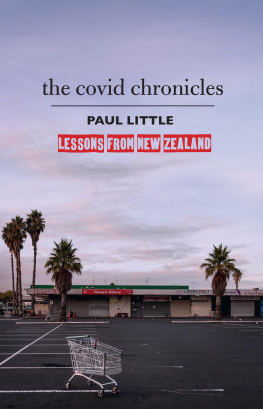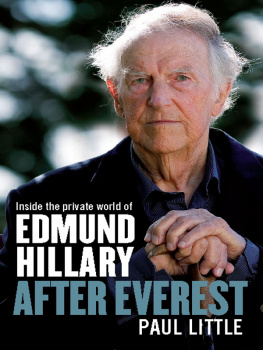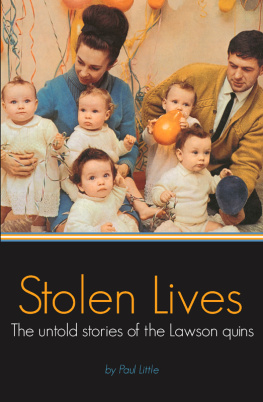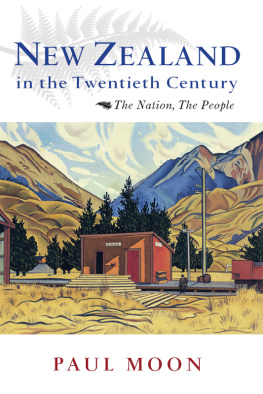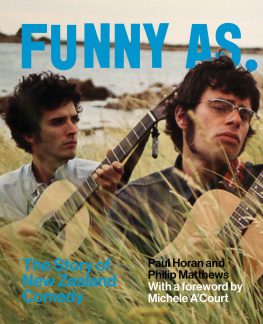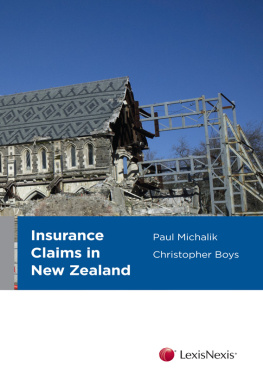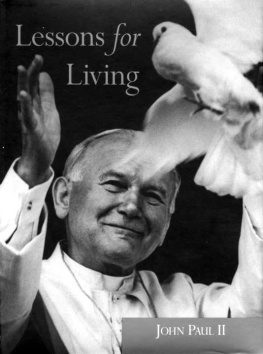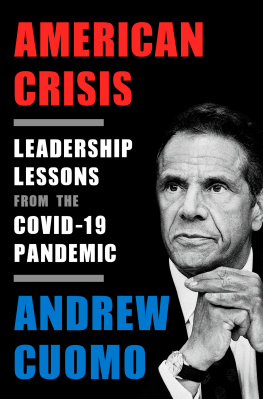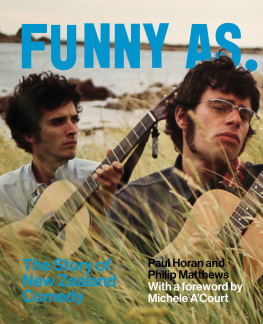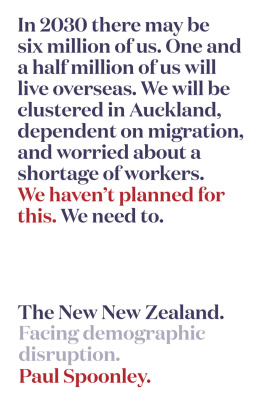Paul Little - The Covid Chronicles: Lessons from New Zealand
Here you can read online Paul Little - The Covid Chronicles: Lessons from New Zealand full text of the book (entire story) in english for free. Download pdf and epub, get meaning, cover and reviews about this ebook. year: 2020, publisher: HarperCollins, genre: Home and family. Description of the work, (preface) as well as reviews are available. Best literature library LitArk.com created for fans of good reading and offers a wide selection of genres:
Romance novel
Science fiction
Adventure
Detective
Science
History
Home and family
Prose
Art
Politics
Computer
Non-fiction
Religion
Business
Children
Humor
Choose a favorite category and find really read worthwhile books. Enjoy immersion in the world of imagination, feel the emotions of the characters or learn something new for yourself, make an fascinating discovery.
- Book:The Covid Chronicles: Lessons from New Zealand
- Author:
- Publisher:HarperCollins
- Genre:
- Year:2020
- Rating:4 / 5
- Favourites:Add to favourites
- Your mark:
- 80
- 1
- 2
- 3
- 4
- 5
The Covid Chronicles: Lessons from New Zealand: summary, description and annotation
We offer to read an annotation, description, summary or preface (depends on what the author of the book "The Covid Chronicles: Lessons from New Zealand" wrote himself). If you haven't found the necessary information about the book — write in the comments, we will try to find it.
Paul Little: author's other books
Who wrote The Covid Chronicles: Lessons from New Zealand? Find out the surname, the name of the author of the book and a list of all author's works by series.
The Covid Chronicles: Lessons from New Zealand — read online for free the complete book (whole text) full work
Below is the text of the book, divided by pages. System saving the place of the last page read, allows you to conveniently read the book "The Covid Chronicles: Lessons from New Zealand" online for free, without having to search again every time where you left off. Put a bookmark, and you can go to the page where you finished reading at any time.
Font size:
Interval:
Bookmark:
CONTENTS
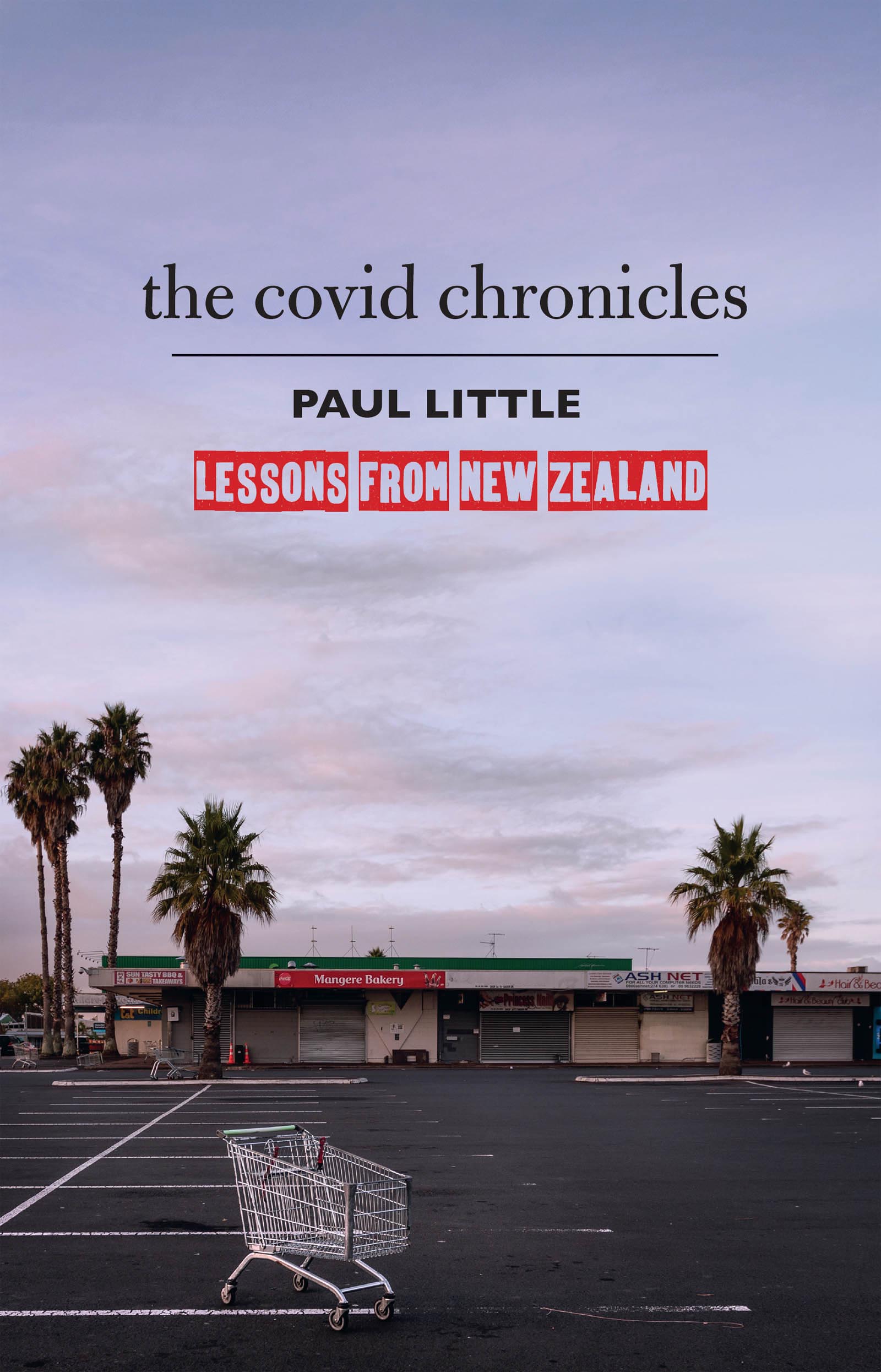
For Lila and Emmie
CONTENTS
This is not the story of New Zealands response to the Covid-19 pandemic of 2020. It is the story of how that pandemic affected several lives, told in their own words. The subjects were chosen because they each had a connection to areas that would be directly affected: government, research, education, media, small business, big business, mental health, social services and others.
When this book was begun, the participants had no idea how their stories would end nor how successful the countrys efforts would be in dealing with the threat of the coronavirus. Serendipitously, its deadline coincided with New Zealands move to Alert Level 1 life almost as normal. This provided a tidy finish for the book but not, of course, to the story of the pandemic.
The people in these pages were interviewed once a week, starting in Alert Level 4, to record their experiences of the pandemic and its effects on them as they happened. (For biographies, see page 283.)
They are owed a huge debt of thanks. They were all quick to agree, never less than fully involved and always generous with their time as the agreed-upon weekly 10-minute catch-ups invariably stretched to half an hour.
The project was driven by the belief that personal stories, recording and writing in real time, provide a special perspective on history, without the filter of hindsight. Its value was confirmed by my wifes reaction when she read the first draft: Id already forgotten so much of this.
It was also intended to be a celebration of the New Zealand effort against the virus. When we win the Americas Cup or the Rugby World Cup we usually havent done anything except sit around and watch. When we won the battle against Covid-19 we really did do it together. Without a unified effort, the lockdown would have failed and our coronavirus death toll would have been considerably higher than 22.
We are still in the middle of a pandemic was the official message as we moved to Alert Level 1 and as we were reminded when new cases appeared in the country weeks after the last one had been recorded. At the time this is being written, there is no way of knowing what twists and turns the progress of that pandemic may take nationally and internationally before it ends. But for anyone wondering about its beginning, this is what it was like.
31 December 2019: The World Health Organization reports a cluster of cases of pneumonia in the city of Wuhan, China...
DECEMBER 2019FEBRUARY 2020
December 20193 January 2020
44 patients with a mysterious illness are reported to the World Health Organization (WHO) by Chinese authorities. More than half have links to the Huanan Seafood Wholesale Market in Wuhan.
7 January
Chinese authorities identify a new coronavirus. They record its genetic sequence and make it available internationally to enable the development of diagnostic kits.
1320 January
Cases of the virus spread from China into Thailand, Japan and South Korea.
23 January
The number of cases has risen to 581, with the virus reported in Taiwan, Hong Kong, Macau and the United States. There have been 17 deaths. Wuhan closes airports, train stations and roads in and out of the city.
24 January
In New Zealand the Ministry of Health sets up a team to monitor the situation but describes the risk of the pandemic reaching the country as low. Australia confirms there are three cases of the virus in that country.
27 January
Public health staff announce they will begin meeting flights from China to look for signs of the virus.
28 January
A National Health Coordination Centre is set up by the Ministry of Health in response to the spread of the virus.
30 January
The government charters an Air New Zealand flight to evacuate New Zealanders from Wuhan.
31 January
The WHO declares the outbreak to be a public health emergency of international concern.
2 February
There are reports that the virus has been transmitted between people who have not visited China.
3 February
The government imposes entry restrictions on foreign nationals travelling to New Zealand from or through China and requires them to self-isolate for 14 days on arrival.
Universities ask that Chinese students travelling here to study be exempt from the restrictions.
6 February
The chartered flight arrives from Wuhan and its 193 passengers are put into 14-day quarantine at a military training camp at Whangaparoa.
11 February
The WHO names the disease Covid-19, short for coronavirus disease 2019. More than 1000 people have now died from the disease.
17 February
A Chinese tourist in France becomes the first person outside Asia to die after contracting the virus.
19 February
The first case of Covid-19 is reported in Iran. People evacuated from Wuhan to Whangaparoa are released from quarantine.
24 February
There are 79,331 cases confirmed globally, 2069 of which are outside of China.
26 February
For the first time, there are more new cases reported from countries outside of China (459) than in China (412) in a 24-hour period.
* * *
New Zealanders, isolated and in our own minds far from the rest of the world, are nevertheless an outward facing people. Many of us are either overseas, thinking about going overseas or have friends and family established overseas, so we are often more aware than most people of what is happening in countries other than our own.
In the beginning, the coronavirus from Wuhan was just another item in a news report, as likely to be quickly forgotten as any other. In the end, our isolation would prove crucial not just to withstanding it but to overcoming it.

If you knew someone in China, you probably had the benefit of an early warning.
Grant Robertson
Minister of Finance
I was at Waitangi for the Treaty commemorations at the start of February and took a phone call from Rodney Jones, a person Ive known for a long time who runs an investment company. Until recently he had lived in China for the best part of 30 years and he is an expert on the country. He was ringing to say he was extremely worried about what was happening in China and that I should be worried about it too. I paid attention to that. I was starting to read a lot about the coronavirus in the newspaper by now.

For most, the news was just another item in a bulletin, but others were immediately aware of its potential significance.
Juliet Gerrard
Prime Ministers Chief Science Advisor
I was having a family holiday at our bach on Great Barrier Island when news reports began to appear saying there was a new virus in Wuhan, China. Having the job I have, it was on my radar instantly. Everyone was on holiday at that time. I quickly checked in with Ian Town, the Chief Science Advisor for Health.
Chief science advisors from countries all around the world are in touch with one another anyway, but even more so for events like this. Early in January a small group of us, including those from the UK and USA, got together and agreed this could be really serious and we needed to start thinking about how we could judge just how serious.
Next pageFont size:
Interval:
Bookmark:
Similar books «The Covid Chronicles: Lessons from New Zealand»
Look at similar books to The Covid Chronicles: Lessons from New Zealand. We have selected literature similar in name and meaning in the hope of providing readers with more options to find new, interesting, not yet read works.
Discussion, reviews of the book The Covid Chronicles: Lessons from New Zealand and just readers' own opinions. Leave your comments, write what you think about the work, its meaning or the main characters. Specify what exactly you liked and what you didn't like, and why you think so.

